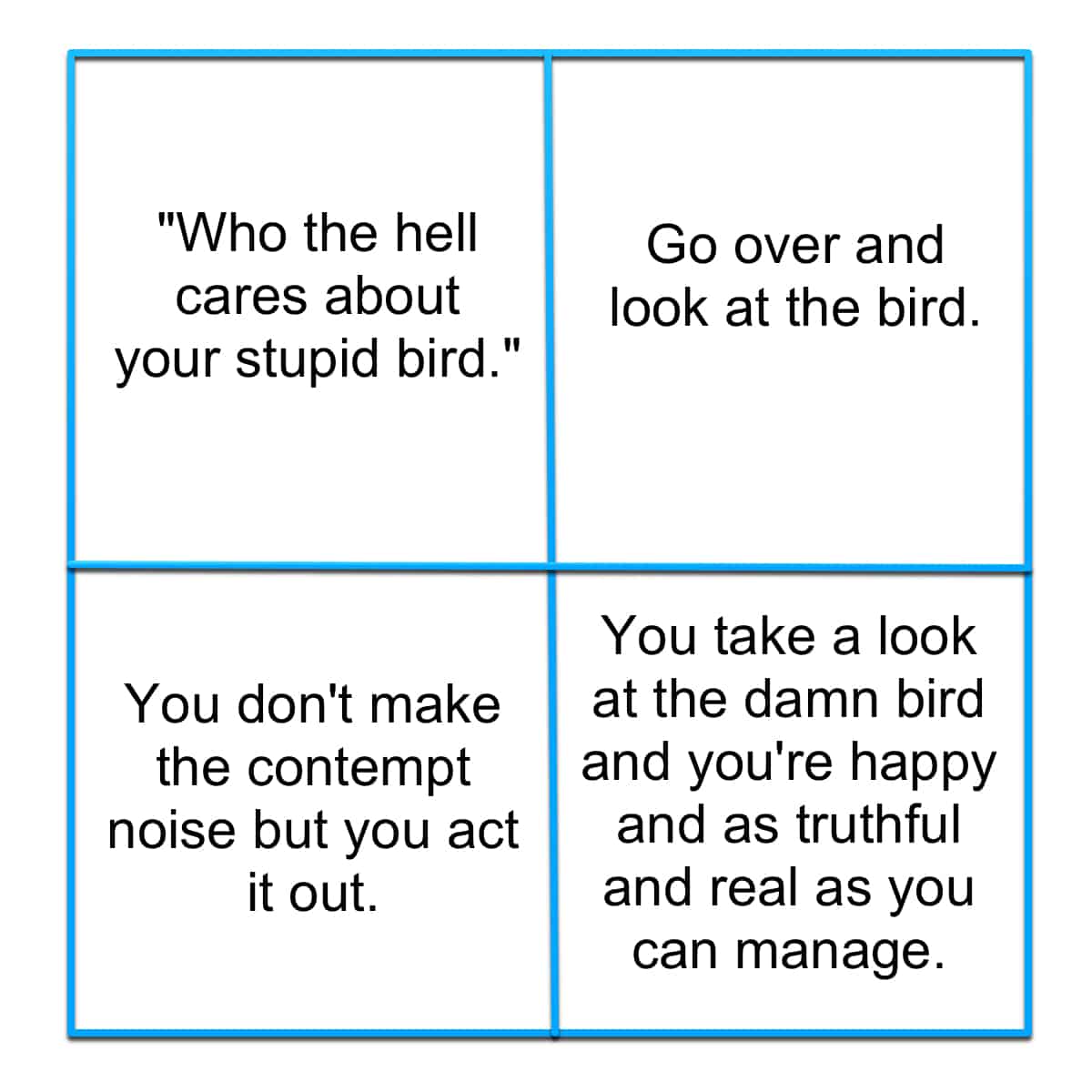Dr. Gottman is famous for setting up a “lab” where he observes couples. He invites couples into a space that looks like a bed and breakfast, and wires them up for a week.
Then he monitors how they behave and respond to one another. Picture this. So, there’s this couple that Gottman is monitoring.
At first they speak with each other quite calmly. But it’s more a walking-on-eggs calm. Their body language shows that their amygdala (the part of the brain responsible for processing anger, fear, and danger) is very aroused.
They move around each other like prey facing a predator. The words of their conversation are there mostly to stop predatory activity, not to actually communicate anything.
It’s just to keep the surface calm.
Do you know the feeling? Lucky you if you don’t. I do.
Now we get into the second part of the Gottman observations.
Now it gets interesting.
Who the Hell Cares
So the woman goes over to the window and she says “Hey look, there’s a scarlet tanager!” (You know, the bright red bird that looks cool.) Sure, it’s kind of a trivial thing in a way, but by the same token it’s like a little positive thing.
So then the husband in this example has a two by two matrix of choices.
1) Sigh and think (or even say aloud!): “Who the hell cares about your stupid bird?”
2) He goes over and looks at the bird.
3) He doesn’t make the sighing contempt noise from choice #1, but he acts it out.
4) He goes over there like a civilized human being. You know, like someone who is interacting with a person they care for. Then he takes a look at the damn bird and he’s happy about it and as truthful and real as he can manage.

Now, let’s have a look at the thoughts of the husband right now:
‘We have been tormenting each other about various things for the last ten years and none of them are resolved. I’m not very happy about you for so many reasons I can’t even remember all of them. If I were to list them right now it would take forever and we would have a huge fight which is what I don’t want. So I’m not going to come over there and make you happy with your stupid bird. I’m going to show you this subtly so you can’t call me a son of a bi**h because I’ve just been sighing. And if you force me to say it I’m going to load all that up and I’m going to deliver it to you.”
Of course, his wife is smart and so she knows exactly what her husbands means. Her heart rate immediately goes way up. She’s being attacked. She feels bad, rejected and ashamed.
How do you Respond to Each Other’s Bids Matters
On the other hand, if one person wants to share some little trivial daily positive thing with the other (Gottman calls these bids) and the other person isn’t carrying around a cartload of resentment and is able to respond to that in a positive way, the couple stays together.
Couples who stay together respond to each other’s bids.
Couples who respond to each other’s bids positively are much more able to work out their problems as they encounter them.











Please note: I reserve the right to delete comments that are offensive or off-topic.